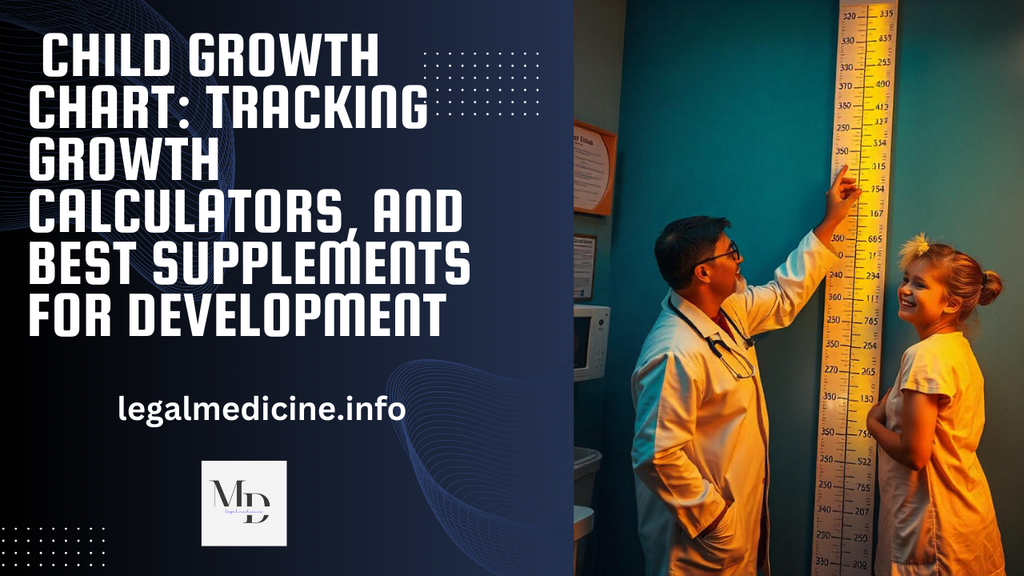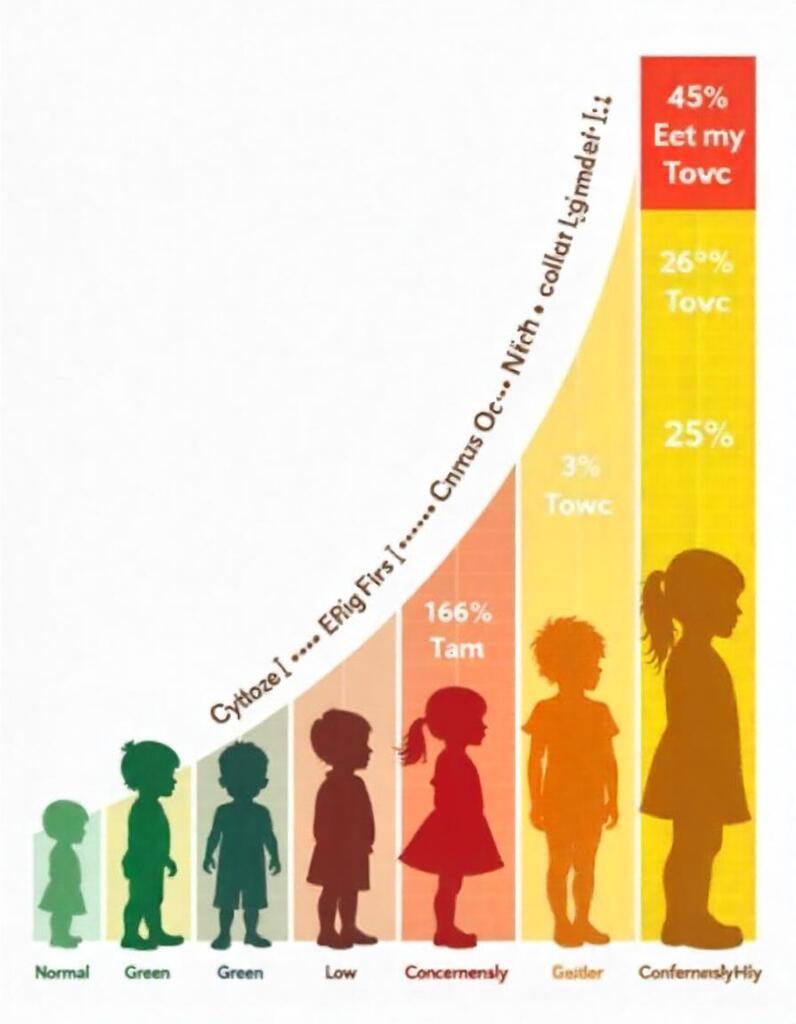Child Growth Chart: Tracking Growth Calculators, and Best Supplements for Development

Introduction
Child growth is a critical aspect of overall health and development. Parents often wonder whether their child is growing at a healthy rate and what factors influence growth. This is where child growth charts, child growth chart calculators, and proper nutrition come into play. This blog will provide insights into tracking a child’s growth, understanding key milestones, and choosing the best supplements for healthy development.
What is a Child Growth Chart?

A child growth chart is a standardized tool used by pediatricians to assess a child’s growth over time. These charts compare a child’s height, weight, and head circumference to other children of the same age and gender.
Why Are Growth Charts Important?
- Help monitor a child’s development.
- Identify potential health concerns early.
- Guide parents on proper nutrition and lifestyle choices.
Types of Growth Charts
- WHO Growth Charts – Used for children aged 0-5 years, emphasizing breastfeeding and early childhood growth.
- CDC Growth Charts – Used for children aged 2-20 years, based on a larger U.S. population sample.
How to Use a Child Growth Chart Calculator
A child growth chart calculator allows parents to quickly determine where their child stands in comparison to standard growth percentiles.
How It Works
- Input the child’s age, gender, height, weight, and head circumference.
- The calculator generates a percentile ranking, showing how the child compares to others.
- If the child falls within 5th-95th percentile, growth is typically normal.
- Below 5th percentile may indicate growth concerns, while above 95th percentile may suggest excessive weight gain.
Online Growth Chart Calculators
Best Supplements for Child Growth

While a balanced diet is the best way to support a child’s growth, some supplements can help fill nutritional gaps.
1. Multivitamins
- Ensure the child receives essential vitamins A, C, D, and B-complex.
- Recommended for picky eaters or children with dietary restrictions.
2. Calcium and Vitamin D
- Calcium supports bone development.
- Vitamin D enhances calcium absorption and boosts immunity.
- Found in supplements like PediaSure Grow & Gain.
3. Protein Supplements
- Whey or plant-based proteins help in muscle development.
- Recommended for children with low protein intake from food.
4. Iron Supplements
- Prevent anemia and support cognitive development.
- Found in chewable iron tablets or fortified cereals.
5. Omega-3 Fatty Acids
- Essential for brain development and cognitive function.
- Found in fish oil or plant-based DHA supplements.
Key Factors Affecting Child Growth

1. Genetics
A child’s height and body composition are largely influenced by parental genetics.
2. Nutrition
A well-balanced diet including proteins, healthy fats, vitamins, and minerals is crucial.
3. Physical Activity
Regular exercise and outdoor play stimulate growth hormones and muscle development.
4. Sleep Patterns
Adequate sleep (8-12 hours per night, depending on age) is essential for growth hormone production.
5. Medical Conditions
Certain conditions like thyroid disorders or hormonal imbalances can impact growth and require medical attention.

Frequently Asked Questions (FAQs) about Child Growth Chart
1. How often should I check my child’s growth?
Doctors recommend tracking growth at regular pediatric check-ups (every 3-6 months).
2. What should I do if my child is below the growth chart percentile?
Consult a pediatrician to evaluate dietary intake, physical activity, and possible underlying medical conditions.
3. Can supplements alone improve my child’s growth?
No, supplements should be used to support a healthy diet, not replace balanced nutrition and physical activity.
4. When should I worry about my child’s growth?
If your child shows slow growth, falls below the 5th percentile, or has sudden growth decline, seek medical advice.
5. Where can I buy high-quality child growth supplements?
You can find pediatric-approved supplements at Amazon, Walmart, and local pharmacies.
Conclusion about Child Growth Chart
Monitoring a child’s growth using growth charts and calculators helps ensure proper development. While genetics play a role, nutrition, sleep, and physical activity are critical. Supplements can support growth when necessary, but a balanced diet and active lifestyle remain key. Stay proactive about your child’s health and consult professionals when needed.
For more expert resources, visit CDC Child Growth Standards and WHO Child Growth Tools.
